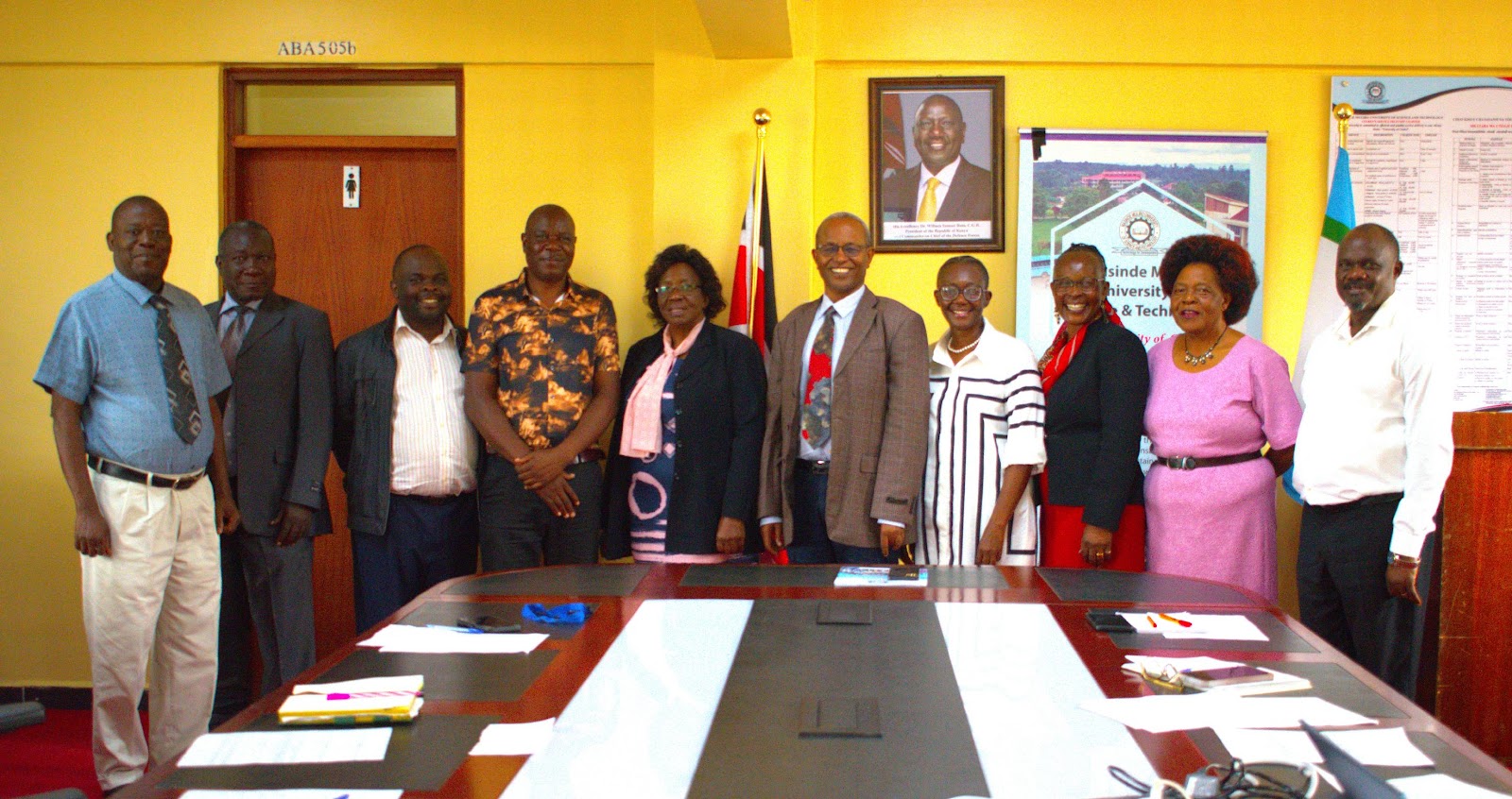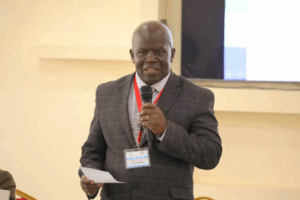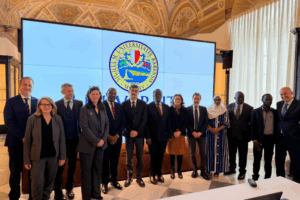
MMUST Leads High-Impactful Dialogue on Aligning University Education With Kenya’s Competency Based Education Framework
Masinde Muliro University of Science and Technology (MMUST), in partnership with Northern Illinois University (USA), under the Carnegie African Diaspora Fellowship Programme (CADFP), on 19th June 2025 hosted a pivotal workshop titled ‘Developing Competencies for Universities and Teacher Education Programs in Alignment with Basic Competency Based Education in Kenya.’ The event marked a significant step towards harmonizing Kenya’s higher education landscape with the national Competency Based Education (CBE) agenda. The goal of the workshop was to co-create a framework that aligns university-level and teacher education competencies with the goals of the Competency Based Curriculum (CBC), which is now in its ninth year of implementation at the basic education level. This workshop was led by Prof. Catherine Aurah (host fellow-MMUST) and Prof. Teresa Wasonga (visiting fellow- Northern Illinois University).
The Deputy Vice Chancellor (Academic and Student Affairs)- Prof. Hussein Golicha during the workshop.
Speaking during the workshop, the Deputy Vice Chancellor (Academic and Student Affairs)- Prof. Hussein Golicha emphasized the critical role universities must play in driving curriculum reforms in Kenya. Prof. Golicha who was representing the Vice Chancellor at the event further noted that for the Competency Based Curriculum (CBC) to succeed, institutions of higher learning must take the lead in reimagining their training models and aligning academic programs with the national CBE goals.
Similarly, the Ag. Deputy Vice Chancellor (Planning, Research and Innovation), Prof. Peter Bukhala lauded the collaborative efforts between MMUST and Northern Illinois University, describing the workshop as a timely initiative that will strengthen the linkage between basic and higher education sectors. Further, Prof. Bukhala underscored the role of research in guiding curriculum redesign, teacher training, and policy development, noting that universities must serve as think tanks and hubs of educational transformation.
A section of the stakeholders having a discussion during the workshop.
The Dean of the School of Education (SEDU)- Prof. Moses Poipoi applauded the workshop’s participatory approach, which brought together voices from across the education sector to co-create solutions. “As a School of Education, we recognize that the quality of teacher preparation directly impacts the effectiveness of CBC in the classroom. We must therefore re-examine our training models to ensure they reflect the competencies required for 21st century teaching and learning,” said Prof. Poipoi.
The Associate Dean SEDU- Dr. Rose Opiyo keenly follows a presentation during the workshop.
Reiterating the Dean, the Associate Dean SEDU- Dr. Rose Opiyo echoed the need for a transformative shift in teacher training approaches to effectively support the Competency Based Curriculum (CBC). She emphasized that aligning university programs with the Competency Based Education (CBE) framework requires intentional restructuring of teaching methodologies and learning outcomes. “In order for CBC to take root, we must begin at the foundational level which includes how we prepare our teachers. This calls for more than curriculum review; it requires a cultural shift in how we perceive teaching, learning, and assessment,” stated Dr. Opiyo.
Prof. Catherine Aurah (host fellow-MMUST) and Prof. Teresa Wasonga (visiting fellow- Northern Illinois University) at the workshop.
In her opening remarks, Prof. Aurah stressed the need for alignment across all levels of education, noting that Universities must evolve to meet the demands of CBC. “We must rethink our teacher education programs to develop professionals who are not only qualified, but also CBC-competent,” said Prof. Aurah.
Prof. Wasonga underscored the importance of international collaboration and knowledge sharing, highlighting that Kenya’s efforts in curriculum transformation can set a benchmark for other developing countries. “Our universities must move from traditional models to competency-focused training that empowers educators and learners,” she said.
Prof. Teresa Wasonga makes a presentation at the workshop.
The workshop provided a platform for reflection, dialogue, and a call to action on how Universities can support the successful implementation of the Competency Based Curriculum (CBC). One of the major areas of focus was a detailed needs analysis that assessed how well current university programs align with the goals of CBE. The findings revealed notable gaps in curriculum design, instructional methods, and educator preparedness highlighting the need for reform within teacher education institutions.
Prof. M. M. Amadalo and Mr. Elvis Kauka at the event.
The participants also explored an in-depth conceptualization of CBC, shedding light on its philosophical foundations, intended learning outcomes, and emphasis on skills over content. This created a shared understanding among participants of what competency-based learning entails and how it should be reflected at the university level. The stakeholders revealed that in order for CBC to thrive, universities must retool their training programs to produce teachers who are skilled in facilitating responsive, inclusive, and practical learning experiences within the classrooms.
The workshop brought together a distinguished group of participants from various academic and professional backgrounds, whose insights and expertise enriched the discussions and outcomes of the event. They included Prof. M. M. Amadalo, Prof. Elizabeth Abenga, Dr. Eric Wangila, Dr. Beatrice Shikuku, Dr. Eunice Majanga, Dr. Ababu Musera, Mr. Zablon Obengo, Dr. Teresa Okoth, Dr. Fedrick Matofari, and Mr. Elvis Kauka.
Through this initiative, MMUST highlights its immense contribution to national education reforms and affirms its commitment to preparing teachers who are ready for a competency-based system.
By Linet Owuor
Photos by Gabriel



